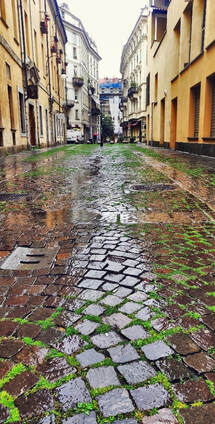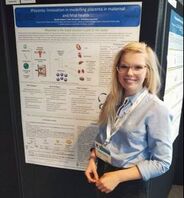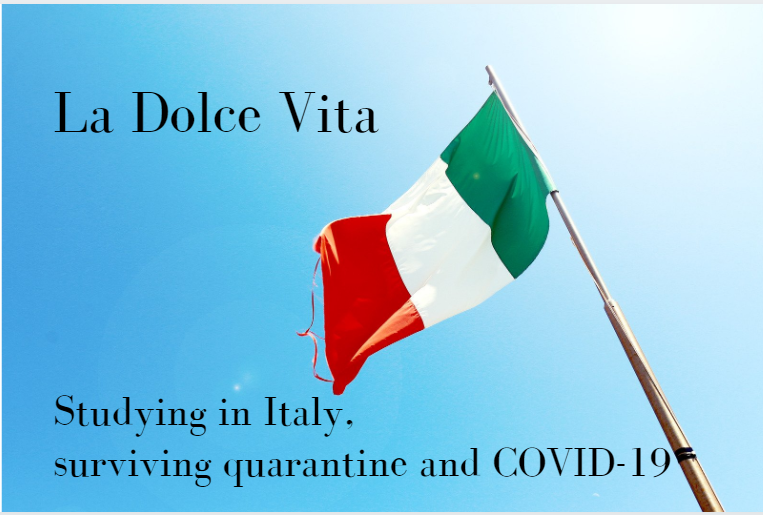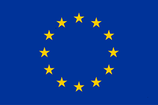|
Studying in Italy, surviving quarantine and COVID-19 In these difficult times, when we are surrounded with sad news coming from all over the world and especially Italy (where I am currently completing my PhD) which has been one of the countries most affected by the pandemic, it is difficult to stay positive and see the silvering of the current situation. Many of us can agree that completing a PhD under normal circumstances is stressful, so what happens when la dolce vita takes a drastic turn and your research becomes affected in a new and unfamiliar way? Well, actually the answer I hear the most often, is that no one actually knows. So instead of worrying about things that are out of our control and focusing on the negative aspects of navigating the uncertain waters of work and life and that sunny holiday everyone had seem to be planning being cancelled, I would like to share the good things happening right now all around us. 1. Major collaborations between scientists Since the lockdown began just over 2/3 months ago, the scientific community has managed to transform itself, working towards a common goal. Labs offering their resources, knowledge and personnel to tackle the coronavirus crisis in any way possible. This has enabled hospitals to carry on with all the necessary testing procedures and acquire essential personal protective equipment they require. Distribution of literature and knowledge to quickly come up with treatments. Sharing of data to fully understand the physiology of the virus. The scientific community is doing everything in their power to tackle this crisis. Recently the European Union hosted a hackathon EUvsVirus with over 20,000 participants from a variety of backgrounds who offered their businesses, innovations and ideas to aid our transition into a world where we must coexist with covid-19 and any possible future outbreaks. 2. Accessibility to online courses and seminars…. And more, fun iplacenta posts Since we no longer can walk down to lecture theatres, labs, attend seminars and many conferences have been cancelled, online journal clubs and tutorials have sprung back to life. Many institutions and companies are offering free courses, trails and subscriptions to occupy ourselves. This has given many of us an opportunity to try that yoga app or learn something we always wanted to but never had the time for. 3. Unintended Climate benefits  The reduction of air, noise and light pollution as entire countries are on lockdowns has allowed nature to partially heal and restore itself. Perhaps it will give everyone a chance to consider how important action on climate change is and that indeed it is mainly us affecting the environment. We have seen numerous articles describing places like India, China, California and any other heavily polluted locations showing breath-taking landmark being visible for the first time in years due to reduction in air pollution. In Venice the water in the canals has become clean and clear again, allowing wildlife to flourish. This leads me onto my next point…. We have started and we should do more things virtually and use electronic solutions available to us. Not only would this reduce the time we spend for travelling but can aid in fighting climate change. Over several weeks we have seen labs manage to come up with innovative ideas such as virtual posters, organising whole conferences online and travelling less for work related reasons so we can now firmly say… yes, that meeting could have been an e-mail. 4. Appreciation for essential workers and the research world The undervalued heroes of the coronavirus crisis without whom our normal lives wouldn’t be possible to carry on. People are starting to see and realise that those people that we sometimes don’t even notice are performing tremendous jobs and deserve the prize and respect in times of a crisis and beyond it. Not an official positive but a personal goal is to never take anything for granted again, from having that morning cappuccino to being able to freely go for a walk. Lastly the acts of kindness we are seeing all over the world and the sense of community rising has helped me a lot to survive during the difficult parts of this unusual period. I hope you’re all keeping safe. From Italy Nat x Author |
About the blogBeing a PhD student in a European training network is a life-changing adventure. Moving to a new country, carrying out a research project, facing scientific (and cultural) challenges, travelling around Europe and beyond… Those 3 years certainly do bring their part of new - sometimes frightening - but always enriching experiences. Categories
All
Archives
December 2021
|



 RSS Feed
RSS Feed

6/5/2020
1 Comment